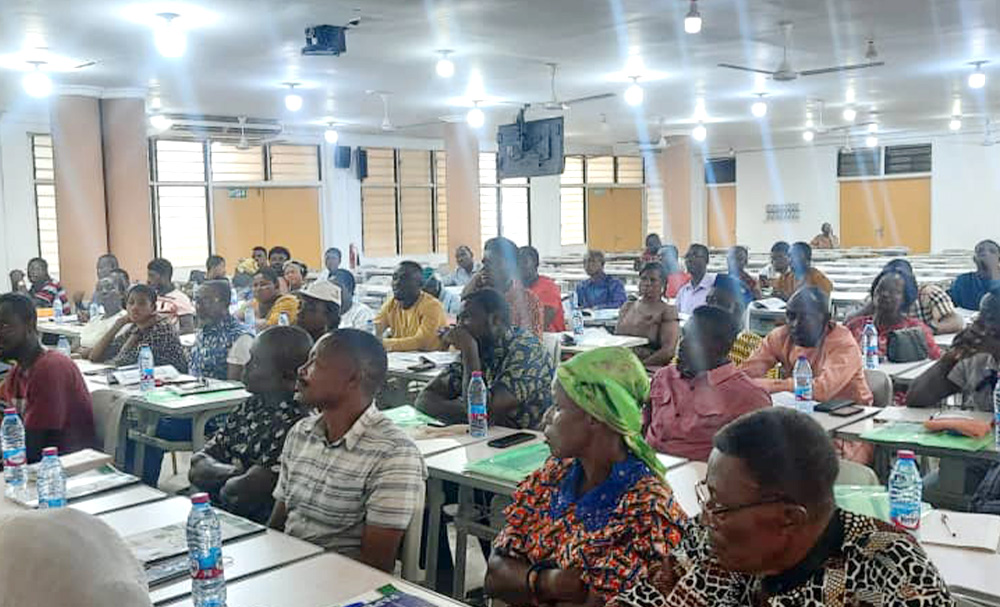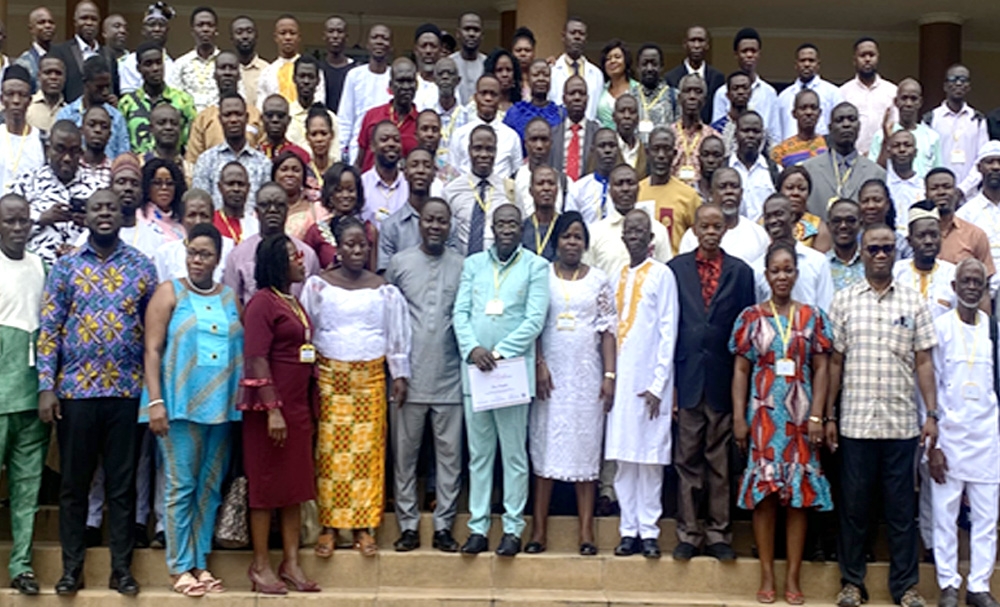The Department of Herbal Medicine, Faculty of Pharmacy and Pharmaceutical Sciences, Kwame Nkrumah University of Science and Technology (KNUST) in association with Universal Plant Medicine and Traditional Healers’ Association (UPMTHA), Ashanti Region has organized an intensive eight-week training programme for traditional medicine practitioners and manufacturers of herbal products. The training was held from 5th August 2023 to 30th September 2023 at the Faculty of Pharmacy and Pharmaceutical Sciences. The theme for the training was “Training in good clinical skill, patient referral procedures and quality herbal medicine production”. Ninety-nine members of UPMTHA were trained in good manufacturing practices (GMP), collection and processing of raw materials, preservation of herbal products, correct packaging and labeling of herbal products and good clinical practices.
The training program was organized in response to a gap analysis conducted by the leadership of UPMTHA together with the herbal medicine department, KNUST which recognized inadequate knowledge in the practice, lack of patient referral procedures and inadequacies in compliance to good GMP protocols as main gaps. Therefore, the main objective was to train herbal medicine practitioners and manufacturers to understand the application of basic scientific methods, tools, and guidelines that could significantly afford the production of quality, safe, and efficacious products. Another key objective was to train practitioners on cases that required referral for specialized care.

Prof Isaac K. Amponsah, the Head of the Herbal Medicine Department, in his address to the practitioners, indicated that globally, herbal medicines constitute a multi-million-dollar industry with an enormous potential to employ many Ghanaians. To harness the full potential of the industry, it is important to build the capacity and skills of industry players and some important stakeholders. This will ensure that people who utilize the services and products of the practitioners obtain the standard care required. He encouraged practitioners to prioritize saving lives as their main motivation in this industry and that will keep them from unsafe practices. He therefore cautioned that the herbal medicine space was not a breeding ground for charlatanism and urged practitioners to expose such bad elements within their rank file.
Prof. Amponsah assured the practitioners that, the Department of Herbal Medicine, KNUST, will ensure practitioner development as a strategic and critical mandate.
Training Session
The following topics were covered during the training;
- Basic human anatomy for indigenous traditional medicine practitioners
- History taking and basic clinical examination
- Use of basic medical devices
- Laboratory investigations and interpretation
- Collection and processing of plant raw materials
- Good manufacturing practices
- Preservation of herbal products
- Packaging and labeling
- Record keeping
The following experts delivered the clinical session of the training. Dr. Richmond Amo, a Senior Medical Officer at the Kwame Nkrumah University of Science and Technology Hospital and Dr. Andrew Tetteh a lecturer introduced the practitioners to basic diagnostic skills, various parts of the body and some common diseases affecting these parts. They were educated on how to diagnose and manage the following diseases malaria, enteric fever, diabetes, hypertension and sexually transmitted infections among others.
Prof. Isaac Amponsah, the Head of the Department of Herbal Medicine, KNUST, delivered the Good Manufacturing Practice (GMP) module. Also, Dr. George H. Sam of the Department of Herbal Medicine was responsible for Quality Assurance and Quality Control of Herbal Products.
Dr. Bernard K. Turkson, Department of Herbal Medicine took the practitioners through patient referrals and procedures and how to take proper history. Lastly, Mr. Michael Baah took the participants through record keeping, packaging and labeling of products.
In his closing address, the Head of the Department for Herbal Medicine, Prof. Isaac Amponsah, said the organization of the program is the realization of the dream for which the Department, which is one of a kind in the world was established. He added that the Department was established to add science and technology to herbal medicine practice, to modernize the practice, and to ensure conventional and herbal medicine practitioners practice in a complementary fashion.
Prof. Isaac Amponsah used the opportunity to appreciate the personalities of the Faculty who put in sustained effort with the establishment and growth of the department including Prof. Emeritus Kwame Sarpong, Prof. Merlin L. K. Mensah, Prof. T.C Fleicher, Prof. Rita Akosua Dickson, Late Prof. Kofi Annan, Late Prof George Kuffor, Prof. Gbedema, and Prof. Isaac Ayensu
Finally, he advised the participants not to merely display their certificates at their various premises but to put into good use what they have been taught as a testament to the quality of the training they have received.
Dr. Bernard Kofi Turkson, the coordinator of the training on his part also reiterated that the department is always ready to support them in analyzing their products to ensure they are of good quality and meet standards. According to Dr. Turkson, the doors of the Department are always open for any assistance practitioners might need in their practice, and should not hesitate to knock on their doors.
The executives of UPMTHA also expressed their appreciation to the Department of Herbal Medicine for organizing such an educative program. They further encouraged other traditional practitioners and groups to make themselves available to be trained so they could properly attend to their patients and prepare herbal medicines that are of good quality, safe and effective.

